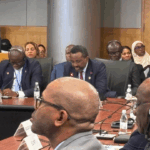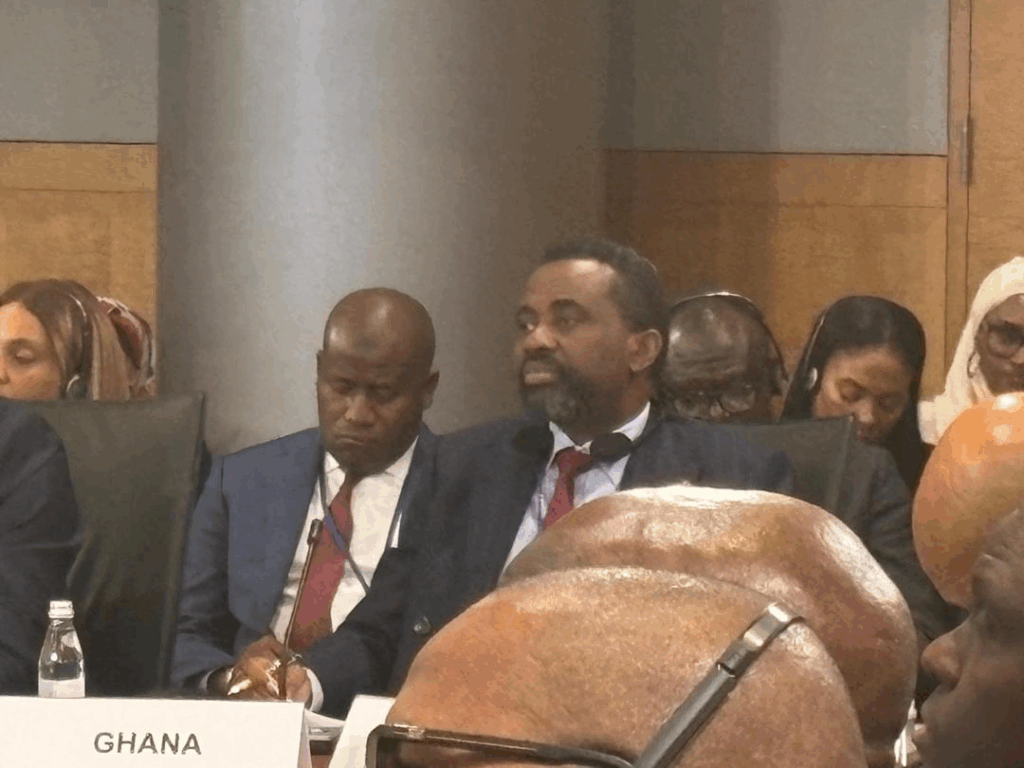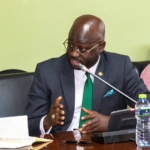
The Governor of the Bank of Ghana (BoG) has urged stronger global commitment to predictable debt restructuring and improved transparency under the Common Framework and Global Sovereign Debt Roundtable.
“While we welcome progress under the Common Framework and the Global Sovereign Debt Roundtable, we urge deeper commitment to predictable implementation and improved debt transparency,” he said.
The Governor made the appeal during the African Caucus meeting with IMF Managing Director Kristalina Georgieva on the sidelines of the IMF/World Bank Annual Meetings in Washington, D.C., USA.
Ghana and Global Sovereign Debt Roundtable Discussions
Launched in 2023, the Global Sovereign Debt Roundtable aims to build greater understanding among key stakeholders on debt and restructuring challenges, address shortcomings in restructuring processes, and promote coordinated solutions both within and outside the Common Framework.
It has helped foster alignment on principles and practices that support smoother debt restructuring. The initiative, co-chaired by the IMF, World Bank, and the G20 Presidency (currently South Africa), includes bilateral creditors (Paris Club and non-Paris Club members), private creditors, and borrowing countries.
The platform has played a significant role in Ghana’s debt restructuring efforts with both bilateral and commercial creditors since December 2022.
The programme is expected to help reduce Ghana’s debt-to-GDP ratio from about 90% to 55% by 2028. However, recent Bank of Ghana data suggests the country may have achieved this milestone ahead of schedule.
The government recently announced the signing of a Bilateral Debt Restructuring Agreement with the Kingdom of Spain, marking the fifth such agreement under Ghana’s official creditor framework. This has contributed to lowering Ghana’s total debt stock to about GH¢628.9 billion, representing a 44.9% debt-to-GDP ratio.

Credit rating agencies have also cited Ghana’s progress in restructuring bilateral debt as a major reason for improving the country’s credit outlook.
Supporting the IMF
Speaking at the same programme, Dr. Johnson Asiama reiterated the importance of a well-resourced IMF to reinforce its central role in the global financial safety net amid growing international economic pressures.
“A resilient IMF is essential to help countries—especially in Africa—manage persistent shocks and maintain stability,” he stated.
He called for stronger concessional lending and timely, predictable support, emphasising that completing the 16th General Review of Quotas (GRQ) and advancing quota realignment in the 17th GRQ are vital for fair representation and enhanced IMF effectiveness.
Dr Asiama also stressed the need for stronger fiscal institutions to promote transparent and accountable borrowing aligned with national development goals while reducing vulnerabilities.
On strengthening risk management frameworks, he highlighted the need for the IMF to proactively safeguard financial stability amid Africa’s accelerating digital transformation and the growing interdependence between banks and governments.
“Innovations like artificial intelligence, blockchain, and digital currencies present both opportunities and risks,” he noted.
He further called for enhanced IMF technical support to bolster cybersecurity, strengthen risk-based supervision, and advance coordinated macroprudential policies to ensure resilient financial systems across Africa.




